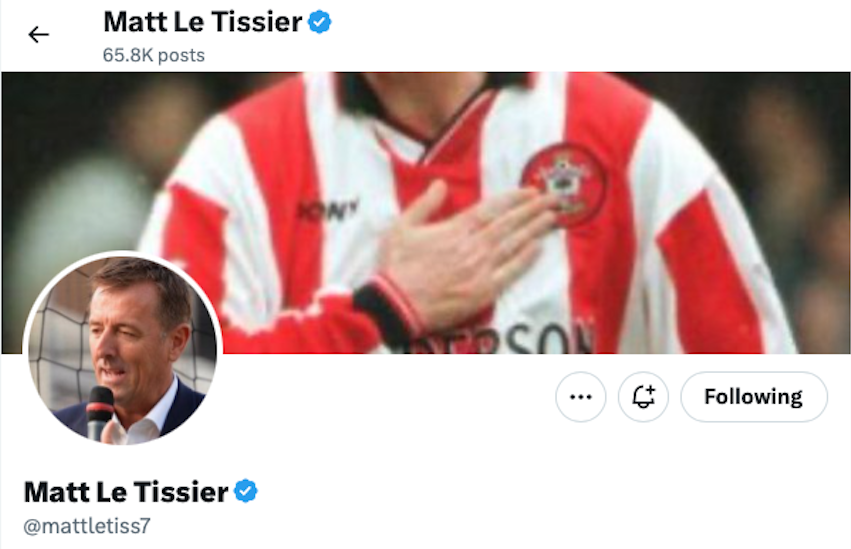


Matt Le Tissier and fellow former footballer John Hartson broke the UK advertising rules in tweets about a CBD product, the industry watchdog has said.
Both posted on X, formerly known as Twitter, promoting Supreme CBD without telling people they were being paid by the company.
The company was set up by former boxer Anthony Fowler, who also was found in breach of the advertising code for one of his tweets.
In May, Mr Le Tissier sent out a tweet with an embedded video, tagging in the company, saying he had been sceptical, “but it’s honestly a game changer for people with anxiety/depression any aches/pain or insomnia". He included a discount code.
The embedded video included Mr Le Tissier with three types of CBD product. In the video he made claims, “these gummies... people are just telling me how well they are sleeping after taking these, helps a lot with the anxiety as does the oils” as well as “people are saying how these things are changing their lives”.
Two tweets were investigated from Mr Hartson, and another from Mr Fowler.
The ASA investigated the posts for not making clear their commercial nature as well as for making claims about being able to prevent, treat and cure human disease, which is also against the advertising code for a food product.
They upheld both aspects.
“We welcomed Supreme CBD, Mr Fowler’s, Mr Hartson’s and Mr Le Tissier’s assurance that the claims would be amended,” the ASA said in its ruling.
“However, because at the time the ads were seen they included claims that a food supplement could prevent, treat or cure disease, we concluded that they breached the Code.”
Supreme CBD told the ASA that Mr Le Tissier was an affiliate and received commission from his personalised code, but there was no official contract and the arrangement had been made verbally. They said that there were no restrictions in terms of what he was allowed to post about the brand.
He said that in future he would include an appropriate identifier on his posts and also agreed not to mention any medical benefits.
He said that he had been referring to personal experience and feedback he had received from others, and was unaware that talking about the benefits of the products would be unacceptable.
The ASA said the posts must not appear in their current form.
They said that there was a financial agreement in place between Supreme CBD and both Mr Hartson and Mr Le Tissier, and that they both received commission for sales generated from the use of their personalised codes by consumers.
“We also understood that Mr Le Tissier was, and Mr Hartson had been, brand ambassadors for Supreme CBD and were featured within an 'Ambassadors section' on the Supreme CBD website… We considered it was likely that as a brand ambassador there would be an expectation that they would be positive about the brand.
“The role of brand ambassador, we considered therefore constituted a commercial relationship with Supreme CBD, and further underlined that they had a relationship with the brand. All their posts made about Supreme CBD, therefore, fell within the remit of the CAP Code.”
Because of this, the commercial intent of the posts should have been identifiable, it said.
Comments
Comments on this story express the views of the commentator only, not Bailiwick Publishing. We are unable to guarantee the accuracy of any of those comments.